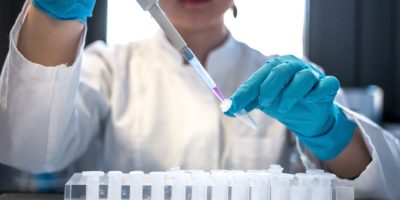Dr. Ingrid Klingmann: The Importance of Good Clinical Practice
Clinical trial expert Dr. Ingrid Klingmann is a founding member and currently Chairman of the Board of the European Forum for Good Clinical Practice (EFGCP) – one of the partners in COMBACTE-NET and COMBACTE-MAGNET. Dr. Klingmann speaks about the fundamental value of good clinical practice in running efficient, high-quality clinical trials.
How did you get in the good clinical practice field?
“I studied to become a physician and my aim was to become a general practitioner at the country side. And I did manage to get there, but I realized it wasn’t something I wished to do for the next 35 years.
I then joined the pharmaceutical industry and learned about clinical research and how to develop new drugs/treatments from an ethical, quality, methodological point of view. Because of my physician background, when I joined this new field of industry and pharmaceutical medicine, I realized that there are a lot of ethical issues when involving patients in a clinical trial.
As a physician you are trained to diagnose and treat each patient individually. To prove that new drugs are effective and safe clinical trial methodology is required. Meaning the patients no longer receive an individually adapted treatment, but they are given what the randomization scheme requires. The pitfall here is the likelihood that the patient does not get an optimal treatment when involved in a clinical trial. And already that is a big ethical dilemma.
This good clinical practice (GCP) standard allows to perform the studies as ethically correct as possible. GCP is really the only possibility to correctly and reliably justify clinical research.”
How was EFGCP founded?
“There was big discussions and lack of knowledge in the 80s and 90s on how to do clinical trials reliably and efficiently. I was learning more and more about the methodology, the regulatory environment, the quality requirements. Next to my daily company life I was occupied with not-for-profit activities, and not-for-profit organizations that were working on improving the overall environment for clinical research in the sense of GCP and ethical approaches. That was how we founded EFGCP 25 years ago.
We originally started with physicians, the industry and ethics committees, then over time we started involving patients into this discussion. Pharma companies tend to aim for methodological and regulatory purposes for drugs that achieve clearly measurable results like prolongation of life or change in relevant pathophysiological parameter. Patients are rather looking for a better quality of life in the months that they may still have or improvements in managing their daily life. It’s the same in clinical trials. Sponsors think about a clean methodology that allows for reliable conclusions from the results, but every test, every diary, every visit in the hospital or practice is a burden for the patient.
EFGCP is a place to discuss with all stakeholders involved how to handle study and medicines or medical device development aspects in ethical, efficient and mutually acceptable ways.”
Why is it important for investigators involved in clinical trials to get a GCP training?
“Especially in those countries where multi-resistant infections are particularly frequent, many physicians are not prepared to perform these very demanding studies in their ICU environment. The biggest challenge is certainly to integrate these additional activities and the paperwork into their daily hectic routine. It’s really difficult for them to enroll patients into the studies because they have an infrastructure for emergency care but not for clinical trials and/or they don’t know how to optimally utilize their resources for clinical trial performance. The other big problem is the need for very close collaboration with staff in the hospital laboratory that is also familiar with the study requirements.
When we bring the clinical and laboratory investigators together during the trainings, they get a chance to sit at the same table and discuss how to organize the protocol-related requirements in the most optimal way.
We are not only teaching GCP, but we make sure the investigators are able to learn to organize, manage and run the clinical trials more efficiently. Someone who participates in a 2-day GCP training is afterwards not only an efficient clinical investigator, but he/she gets a good basic practical understanding of what needs to be done, which processes and resources they have to implement in practical terms, how they can structure their own work and which training their team members need.”
What is the importance of COMBACTE’s collaboration with EFGCP?
“I think it’s vital. COMBACTE is a huge opportunity to train a whole layer of investigators in countries where there is really a need for that knowledge, and to get that paid for. This is really something that is very unique and highly appreciated by everybody.
I think COMBACTE enables us to prepare the sites in an optimal way. There is currently lots of discussion about preparation of sites in infectious diseases outbreaks and how to be able to start and perform clinical trials very quickly. In COMBACTE we apply the same approach: preparing the sites so when a study needs to be done quickly and efficiently and with fast recruitment that there is a team of trained people who has the infrastructure and knows how to run such a study.”
Do you have a message for investigators taking part in GCP trainings?
“Clinical research is a discipline, just like any other medical discipline, that requires scientific and methodological knowledge gain, experience, competence development. And somebody who wants to be active in that discipline needs to be truly competent to be able to fulfill his/her duty as a good physician and clinical researcher.”
Related updates

The Last of COMBACTE: COMBACTE-NET

Important Pieces Of A Puzzle
